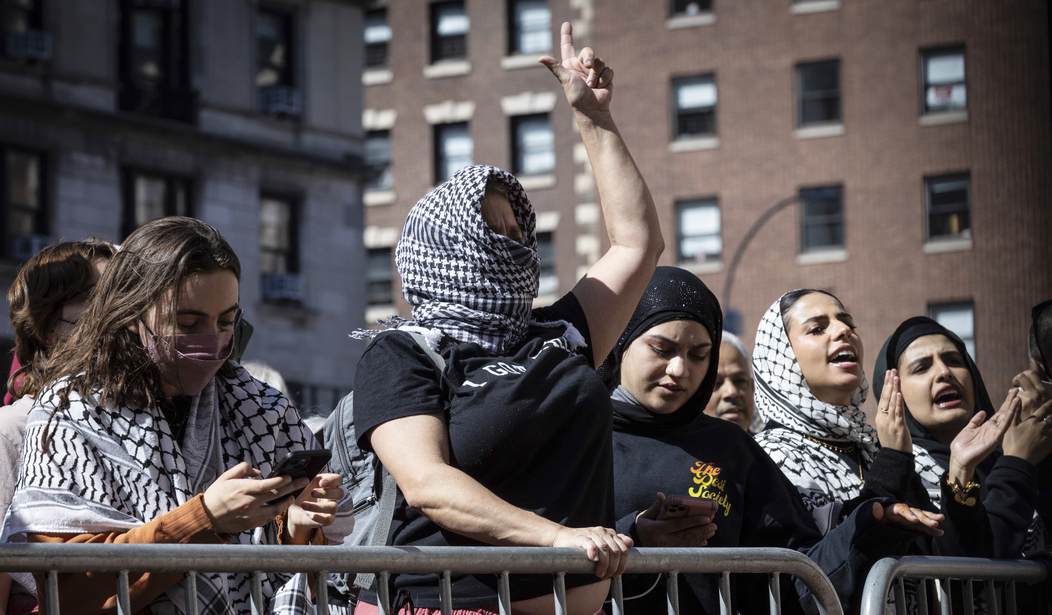The current demonstrations on college campuses against Israel remind some of the unrest on college campuses during the 1960s.
But the comparison is not a good one.
The unrest of the 1960s was defined by the war in Vietnam and by the Civil Rights Movement. Both had practical, personal impact on young Americans in their own country.
American soldiers were fighting and dying in Vietnam. There was real, life-and-death impact on all Americans, and certainly on young Americans.
The military draft was still operative then. Despite various deferments, including deferment for university attendance, the draft was still a reality and was a looming presence for all college-age Americans. They knew they could be drafted and had friends and friends of friends who were.
The official number of American soldiers killed in Vietnam stands at 58,220.
Although there were legitimate moral concerns about American involvement in this war, the moral concerns were accompanied by young Americans having real skin in this game.
The Civil Rights Movement of the 1960s also had real personal moral impact on all Americans. And youth are always highly sensitive to the moral failings around them.
The reality of segregation and Jim Crow started getting national attention with the Civil Rights Movement, the activism of Dr. Martin Luther King Jr.'s Southern Christian Leadership Conference and other more violent groups in the movement.
In contrast to the woke activism of today, which is totally political in character, the Civil Rights Movement was led by a charismatic and articulate Black pastor and had a religious, moral tone rooted in the Christian church.
Recommended
Anyone that questions this should read, or reread, King's "I Have a Dream" speech from 1963.
But King's moral appeal was to an America very different than today.
In 1965, per Gallup, 70% of Americans said religion was personally "very important" to them. In 2023, by contrast, only 45% of Americans say religion is "very important."
In 1962, per Gallup, 46% of Americans said they attended religious services over the last seven days.
In 2023, this was down to 32%.
During this period there were two major wars involving Israel and the surrounding Arab states.
In 1967, Israel prevailed in the Six-Day War, which began with preemptive action by Israel against the Egyptian army mobilized for attack, and subsequent aggression by Syria in the North and Jordan in the East. In 1973, Israel again prevailed against attacks on these same fronts.
In 1967, per Gallup, 45% of Americans supported Israel against 4% who supported the Arab states, with 26% with no opinion. In 1973, 48% of Americans expressed support for Israel versus 6% expressing support for the Arab states and 24% with no opinion.
Support for Israel among Americans during this period was one-sided and clear.
But, again, America today is very, very different.
Our young people in the 1960s understood what personal responsibility is about.
On a national level, in the 1960s, all young Americans faced the reality of military conscription. Today, regarding national obligation and service, there are virtually no demands on our youth.
Now President Joe Biden is even erasing their student loan obligations.
On a religious, moral level, religion then held a much stronger hold on the nation. Religion teaches and inspires a culture where individuals have a sense they belong to and have obligation to something beyond their own egotistical inclinations.
Nature abhors a vacuum, and as religion has weakened and disappeared from our culture, it has been replaced by politics and the welfare state.
The end of it all is we now have a generation of youth insulated from all sense of national and religious and moral personal responsibility.
So now they demonstrate in support of terrorists and against the only free country in the Middle East that shares the very values that made our own country great.

























Join the conversation as a VIP Member